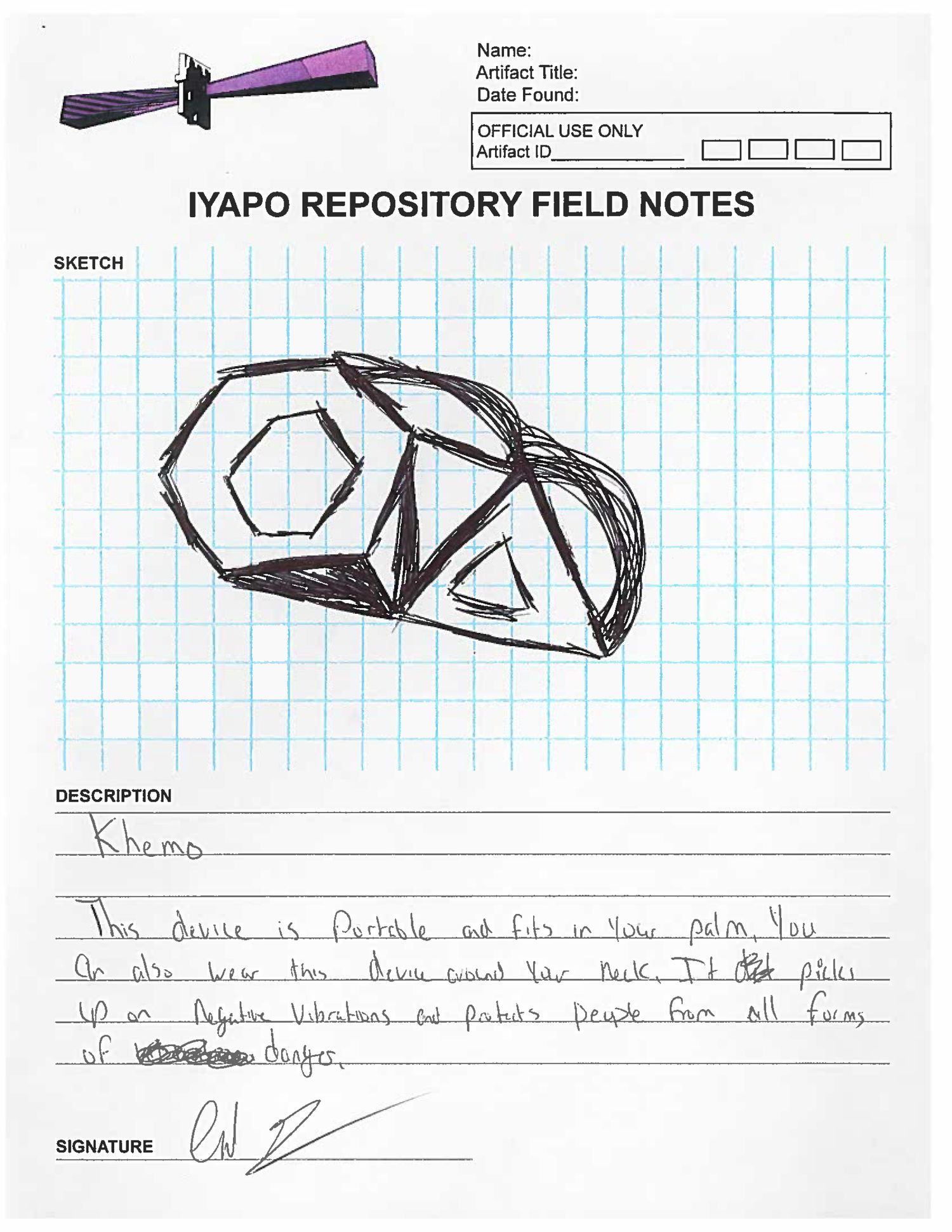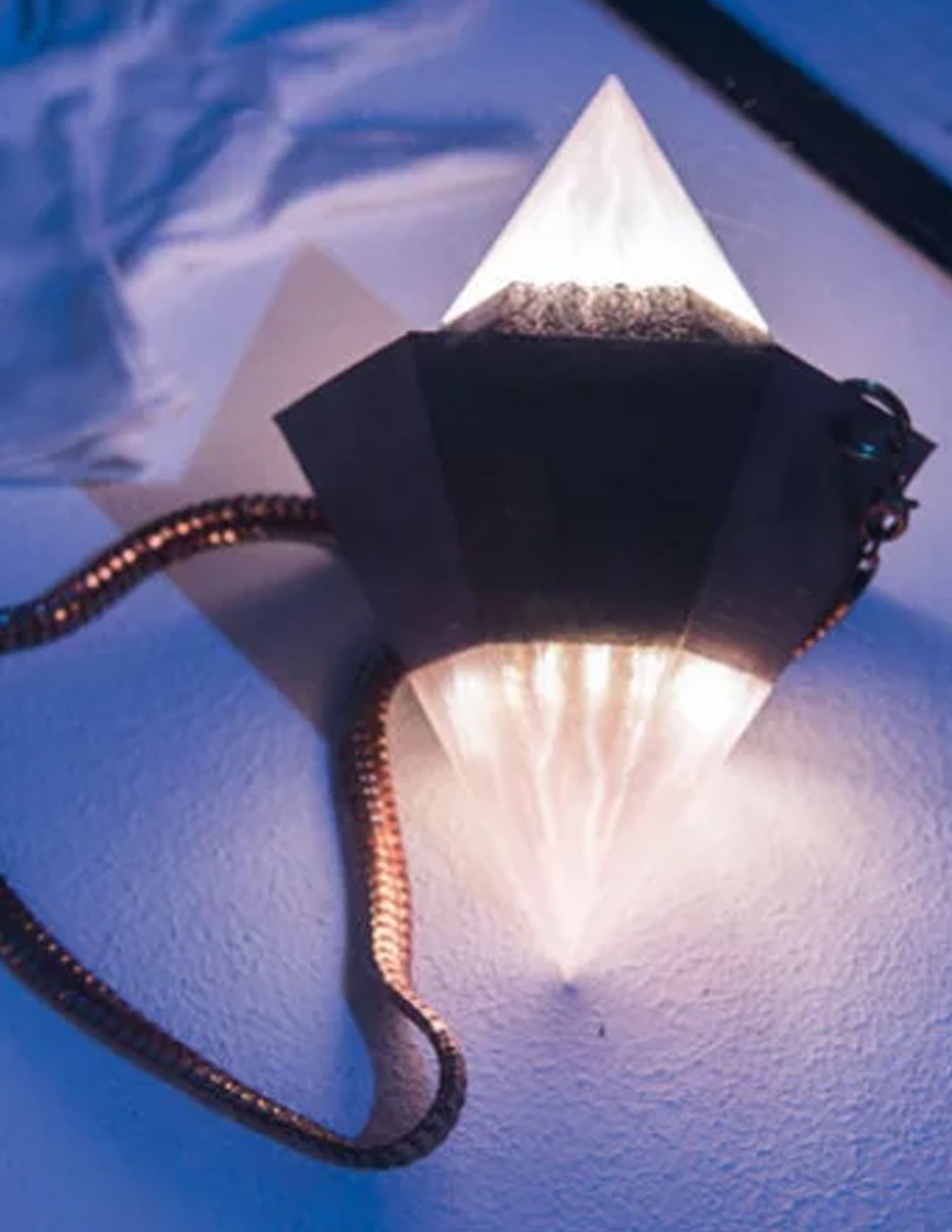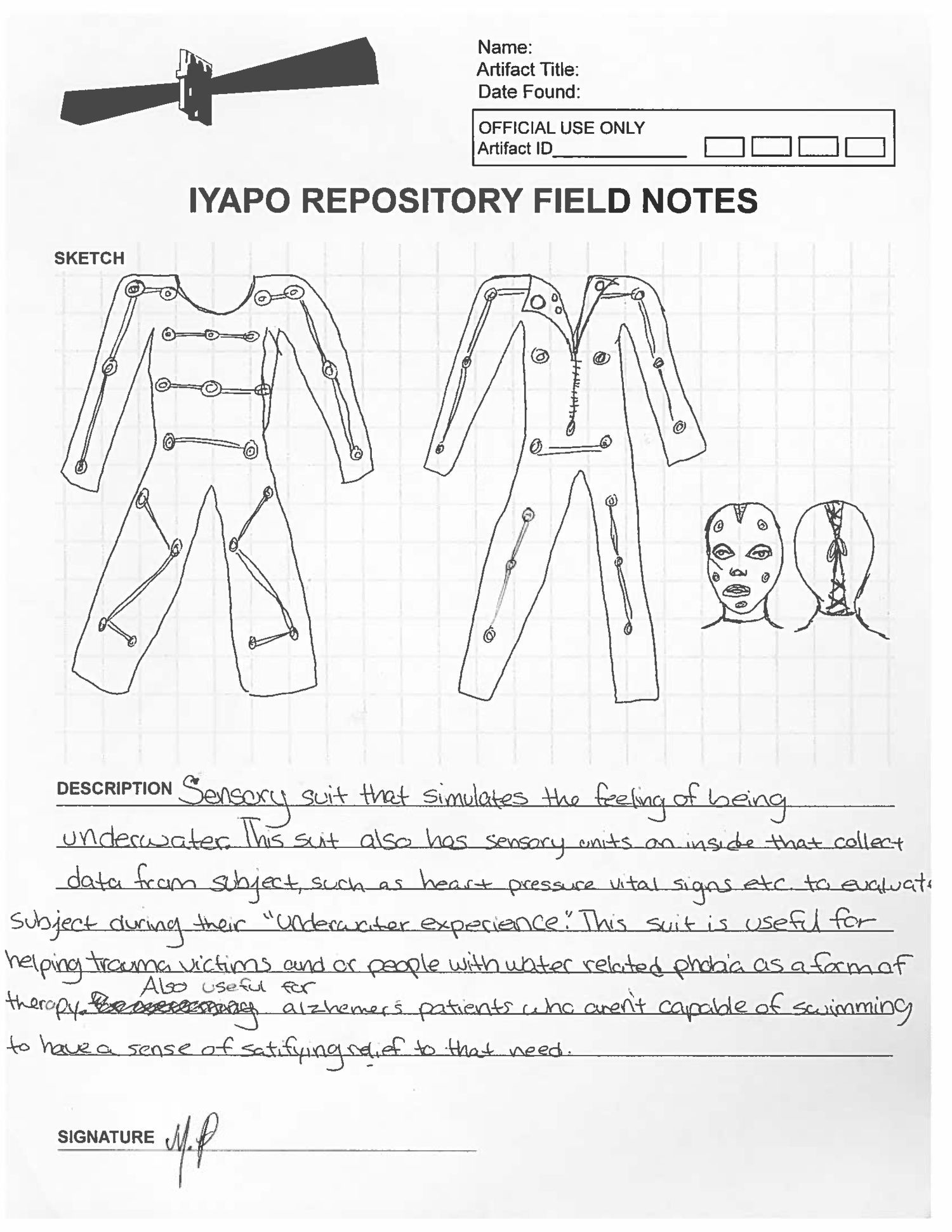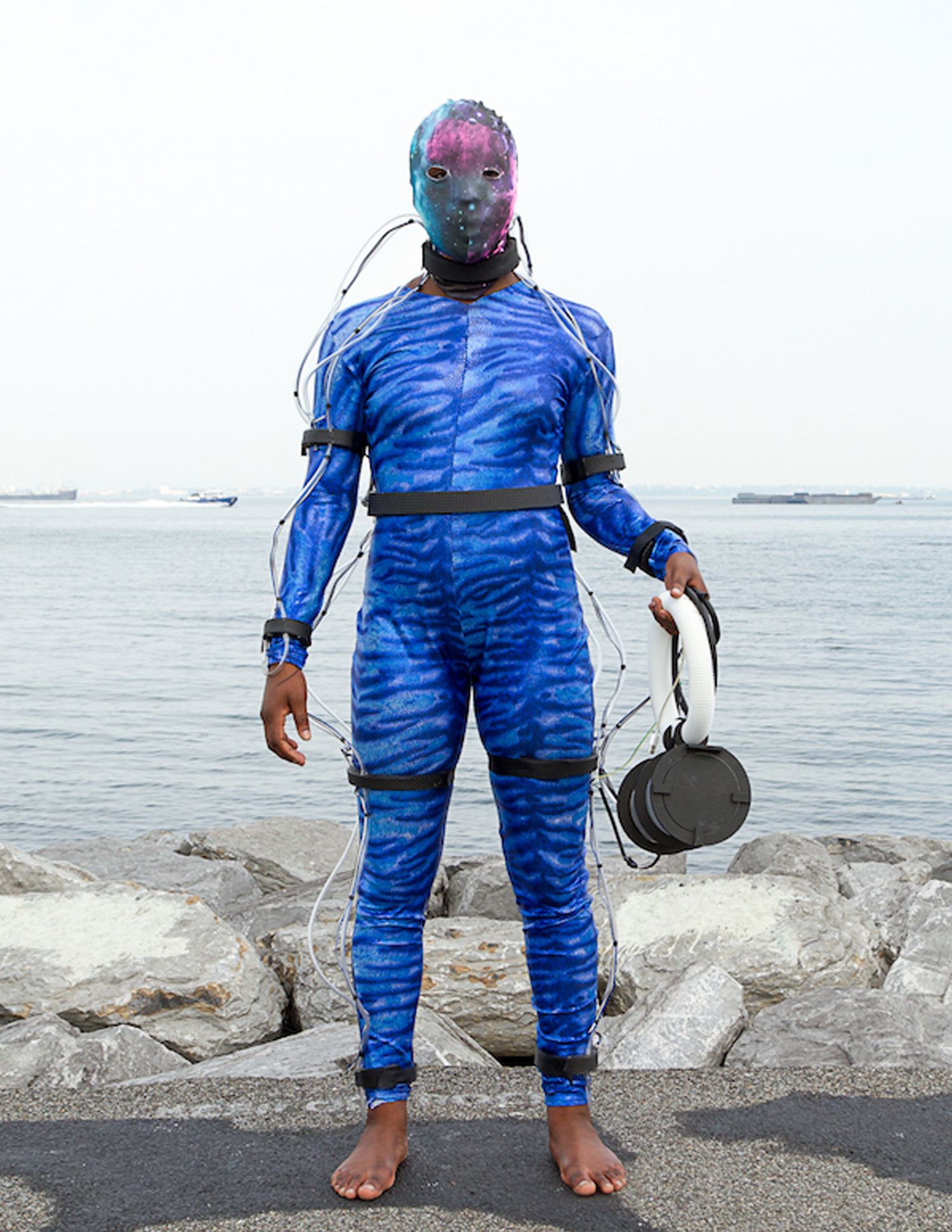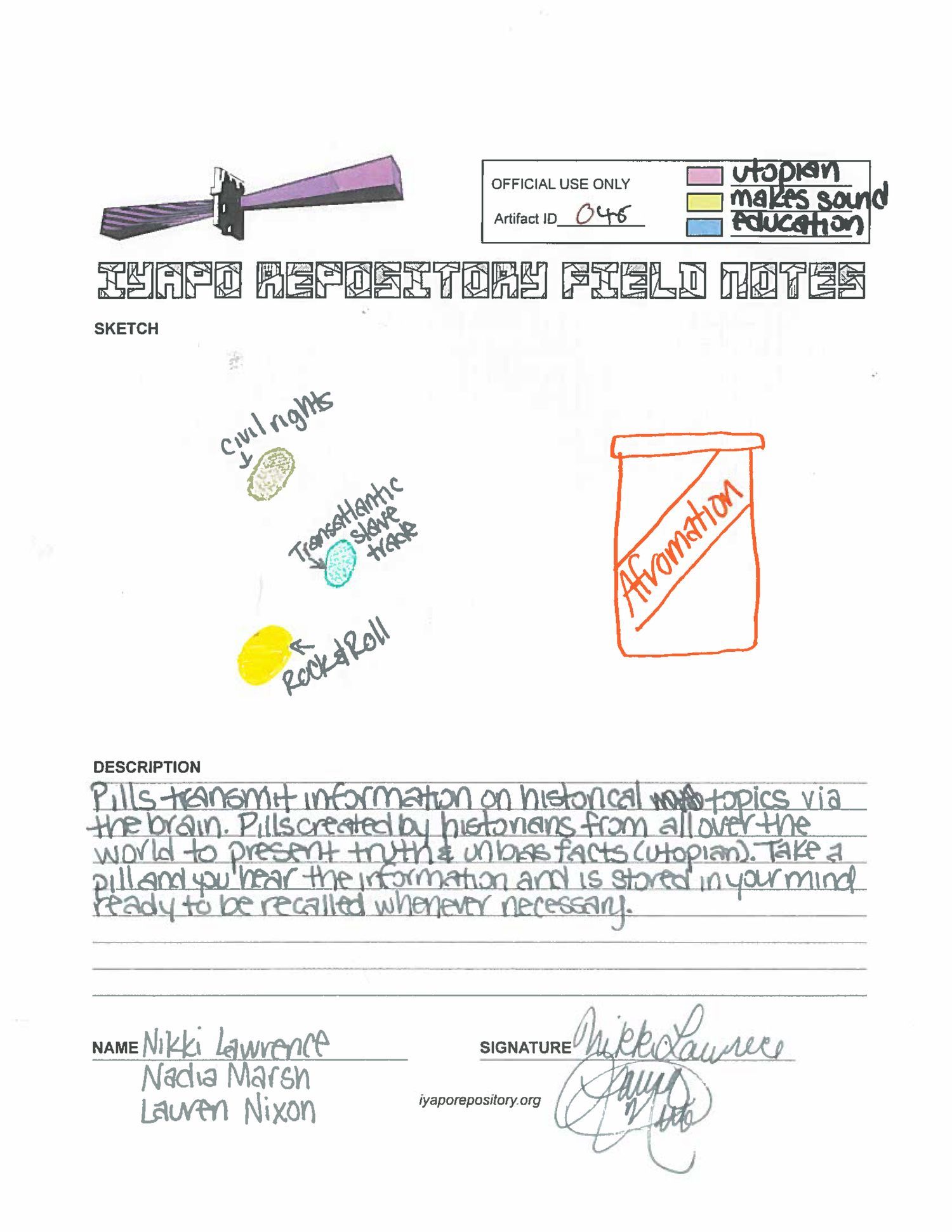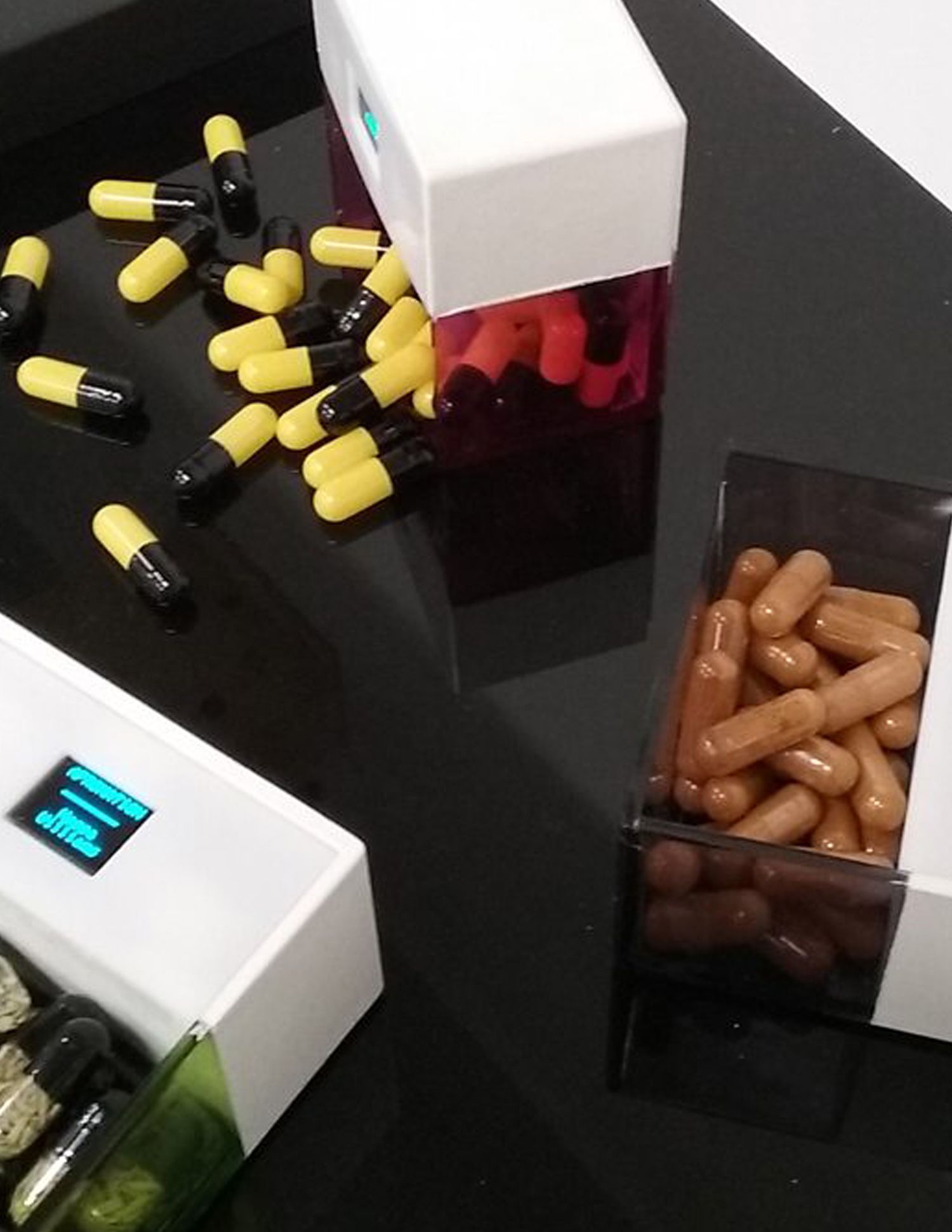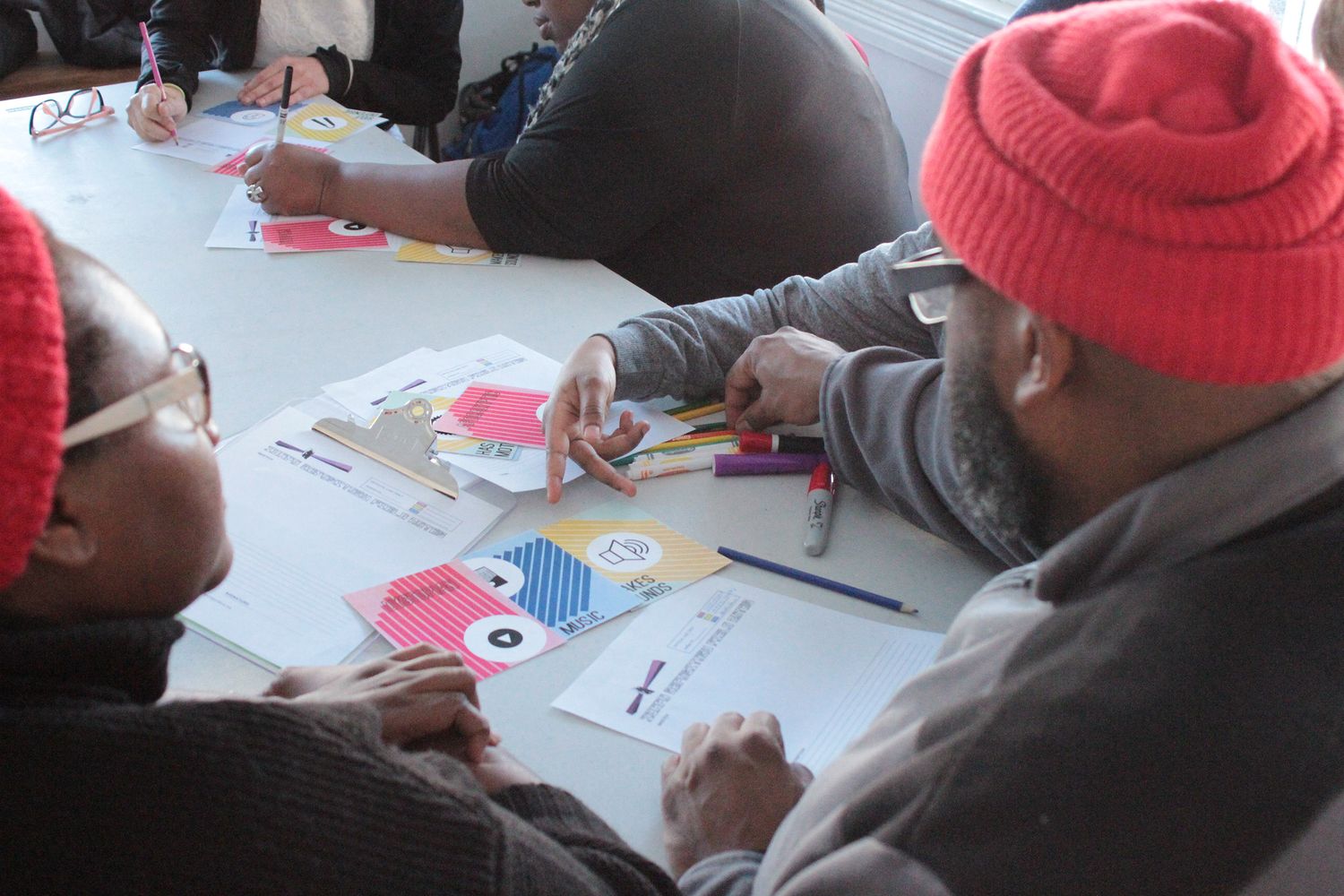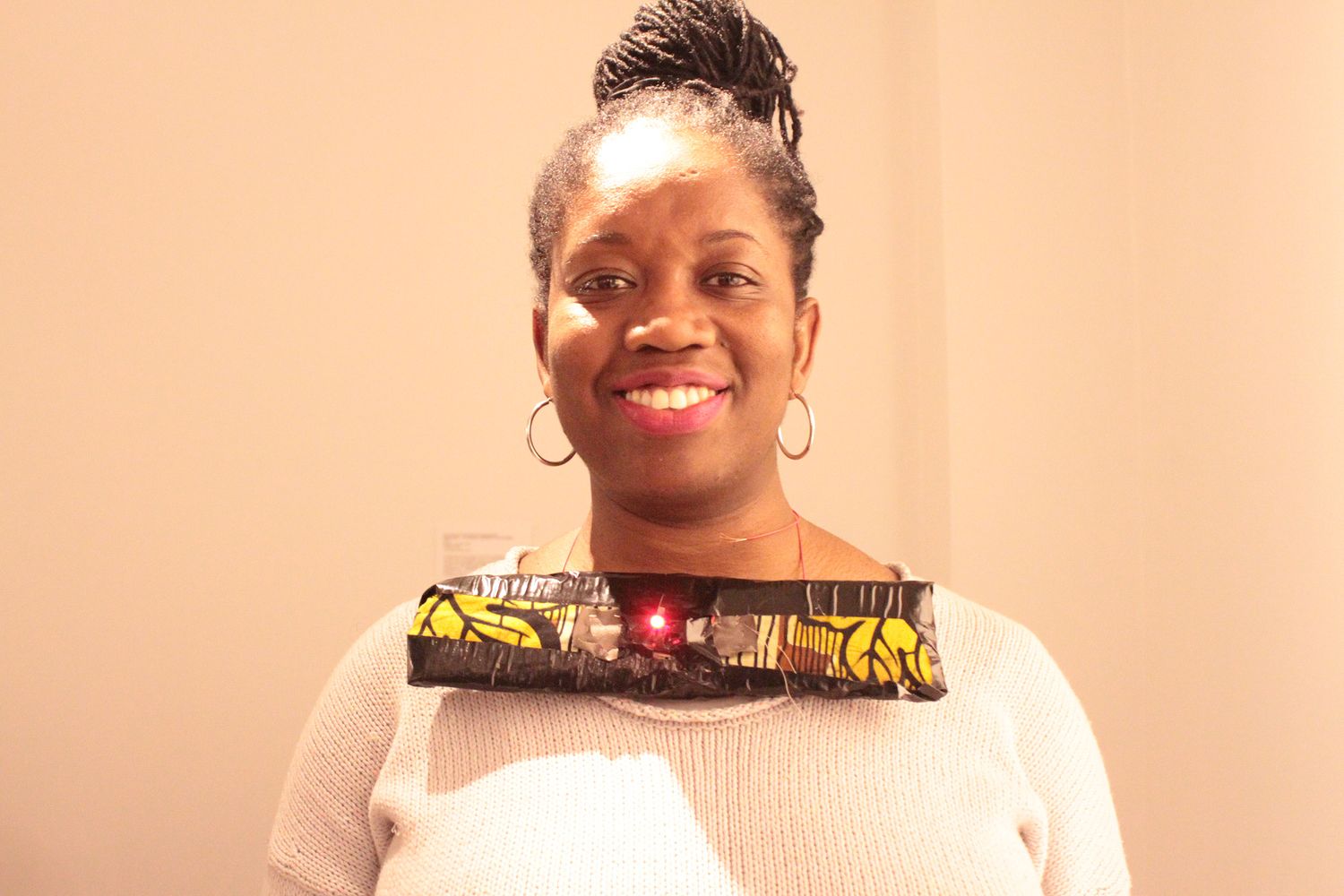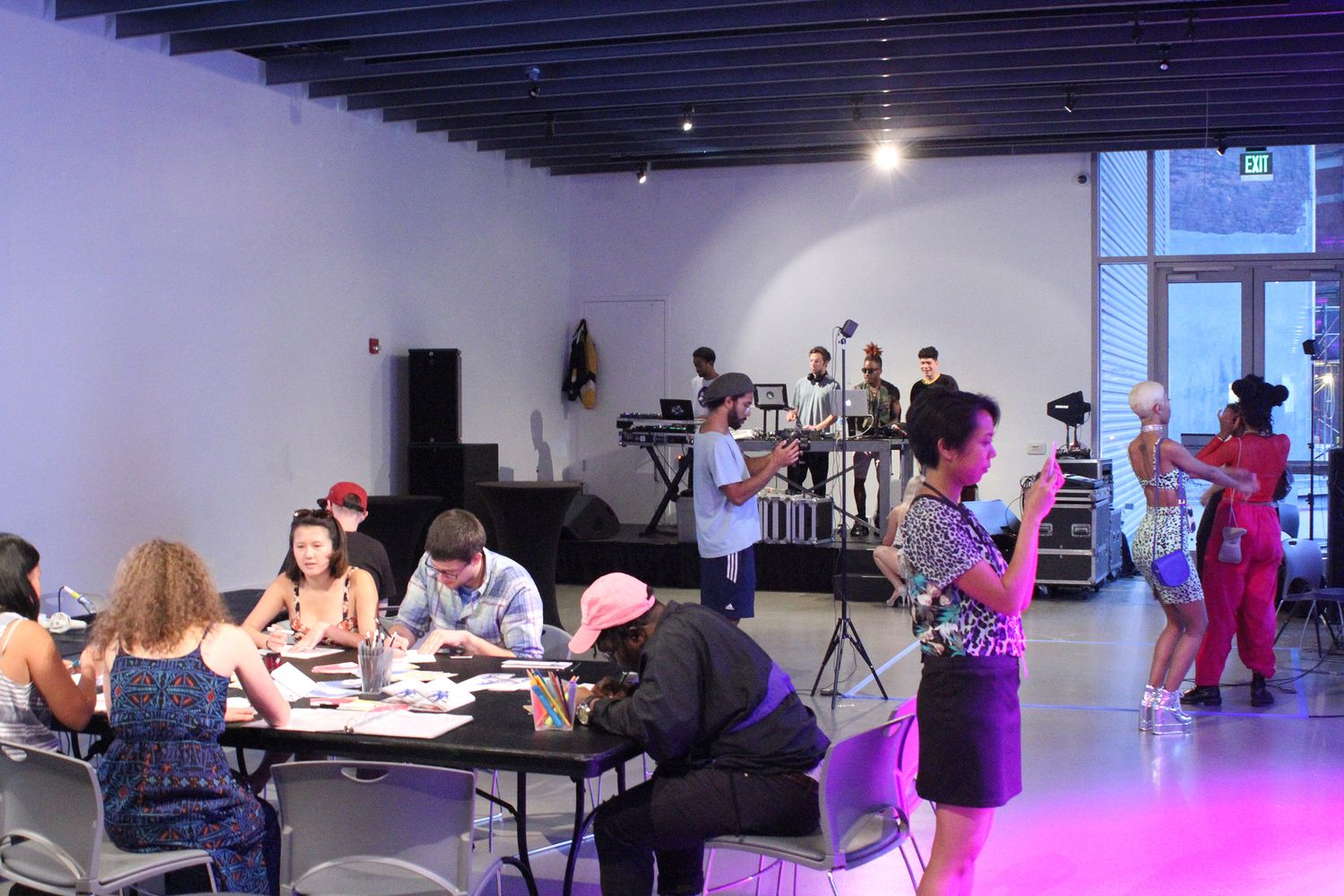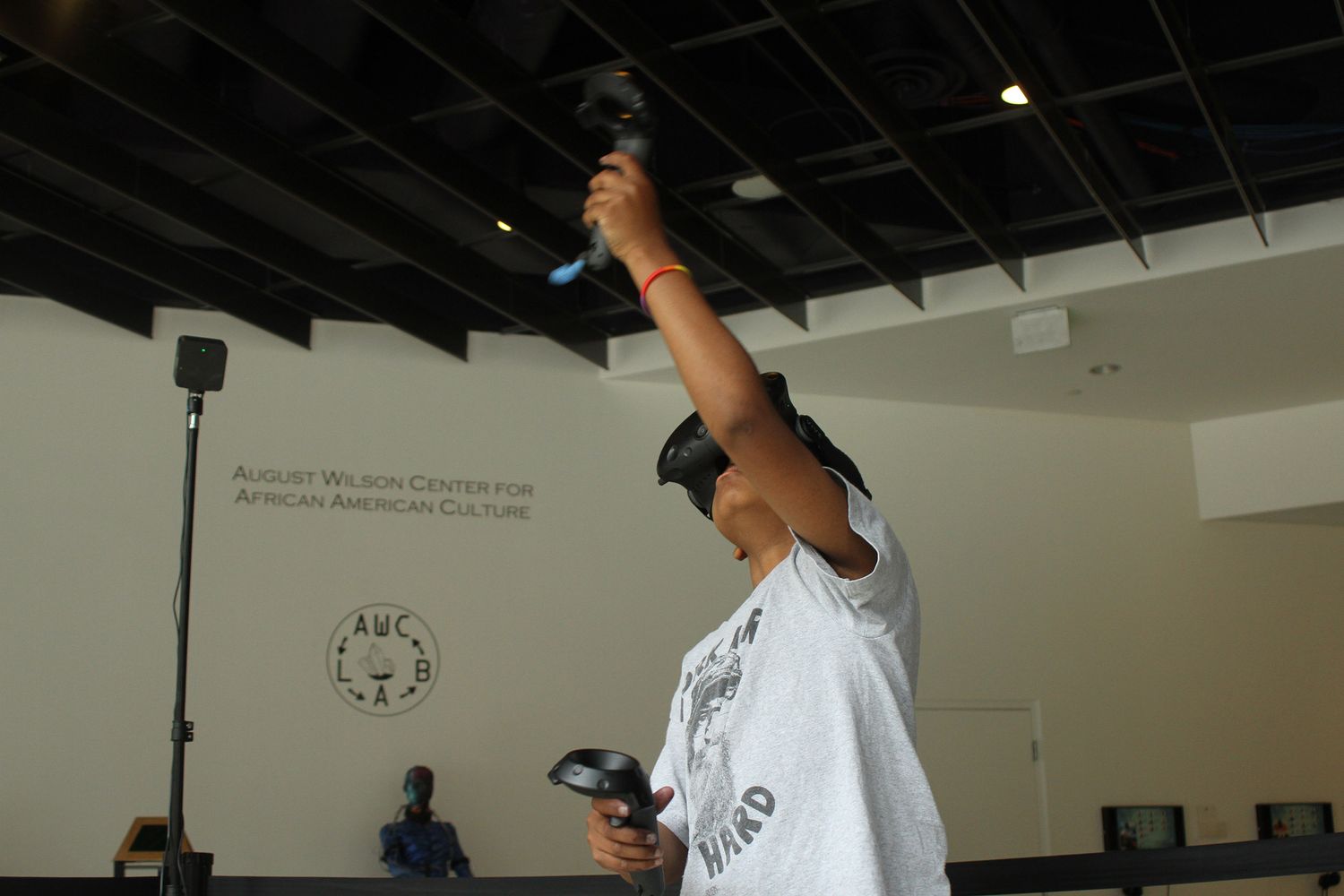Workshop
Overview
-
We run and facilitate FUTURING WORKSHOPS rooted in philosophies of care and reclamation for interested groups and institutions.
-
We run and facilitate PROTOTYPING WORKSHOPS where participants utilize a variety of tools and technologies to create prototypes related to equitable futures.
If you are interested in Iyapo Repository running a FUTURING WORKSHOP or a PROTOTYPING WORKSHOP for your group or institution, please reach out to us at imagine@iyaporepository.org

Playtest - Library of Congress Workshop. Washington DC
We work closely with a diverse global team of conservators and archivists to oversee the expansion and maintenance of the ever-growing collection of artworks and historical objects. Through a series of mobile workshops and exhibitions, participants and attendees actively engage as archivists, aiding in the continual discovery, interpretation, and enhancement of the artifact inventory.
Archivists meticulously complete official Field Notes documenting each artifact, preserving these records within our Manuscript Division. These meticulous notes serve as foundational guides for the assembly, retrieval, and restoration of artifacts that then reside in the Art & Artifact Division. Utilizing the archivists' detailed records, our Researchers and Conservators diligently work to conserve and interpret each artifact to its original state, ensuring its suitability for display within the main collection.
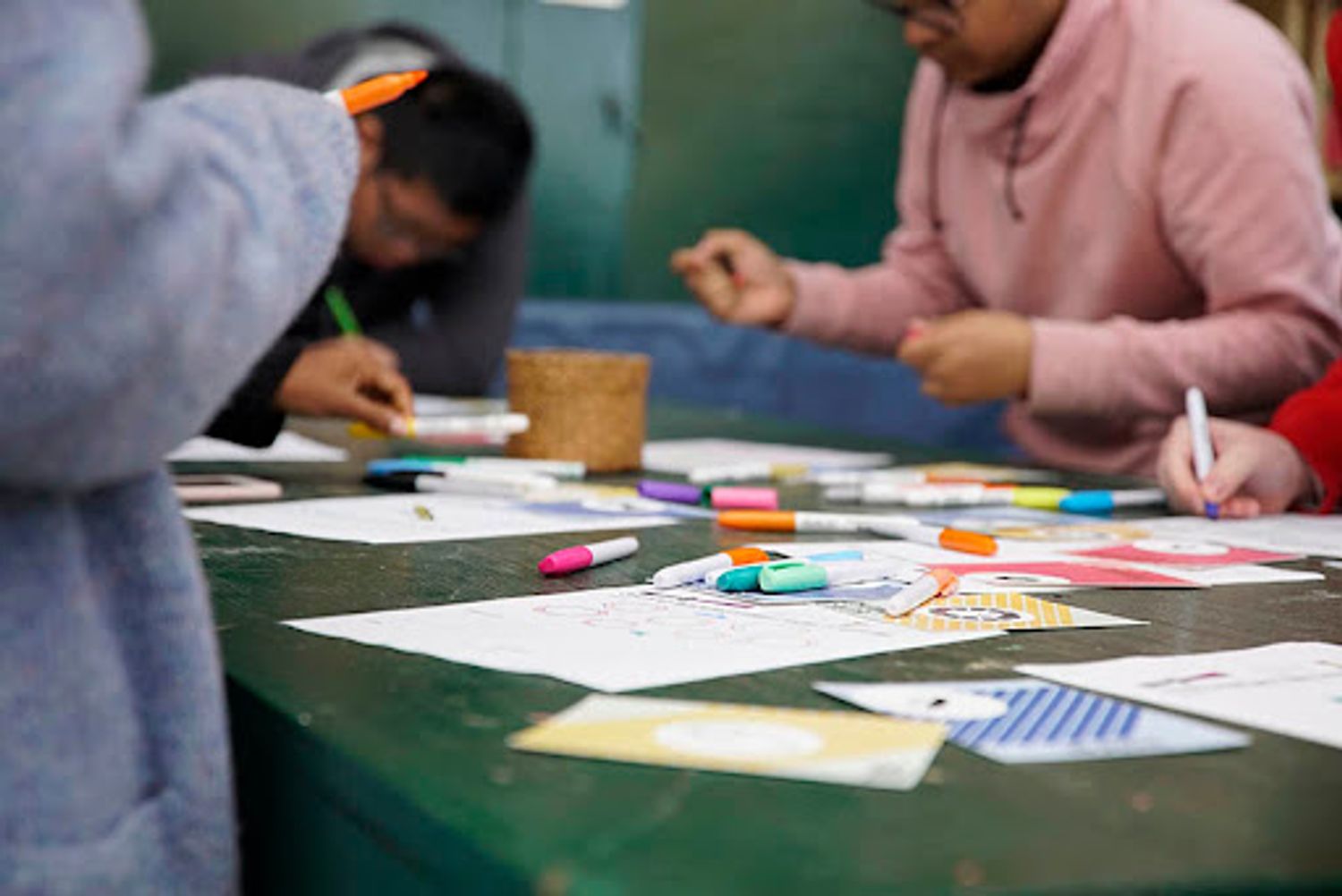
Beyond the Art & Artifacts Division and Manuscript Division, the library comprises distinct specialized sectors devoted to Rare Books, the Moving Image, and Special Projects. Within the Moving Image Division, a diverse array of short videos curated by various filmmakers provide contextualization for the featured artifacts. Meanwhile, the Rare Books Division houses a collection of literary works that have served as essential references throughout the library's development.
Workshop
The Iyapo Repository workshops are deeply influenced by Speculative Design, drawing inspiration from The Thing From the Future game, works by Dunne and Raby, and projects by the Extrapolation Factory. Participants in the workshop step into the shoes of archivists, charged with the mission of uncovering, deciphering, and revealing artifacts from the field. This process is supported by a specific workshop methodology.
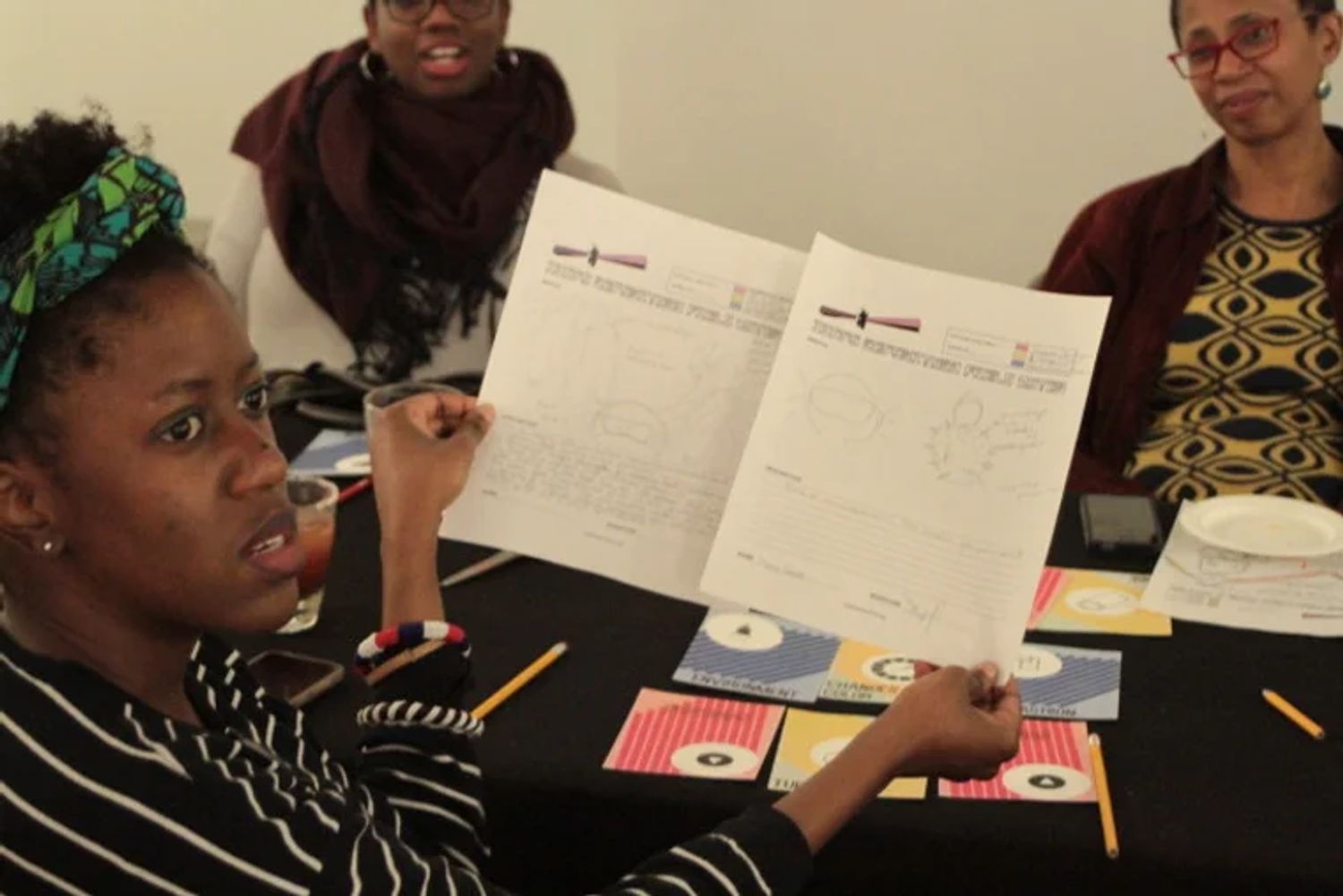
Museum of Contemporary African Diasporan Arts Workshop
7mins - INTRODUCTION:
At the Iyapo Repository, conservators lead participants in shaping the repository's narrative, delving into the project's history, understanding our identity, the project's objectives, and its underlying motivations. Subsequently, participants are invited to embrace the pivotal role of archivists.
3mins - DEFINITION OF TERMS:
The conservators acquaint the archivists with key ideas pertinent to their duties, covering the meanings and importance of Afrofuturism (Reclamation), Speculative Design, and Wicked Problems, along with the significance of merging Reclamation with Speculative Design.
1min - SHOW & TELL:
Manuscripts and artifacts from past Iyapo Repository workshops are shared with the archivists, showcasing the output of previous sessions.
1min - GROUPS:
The optimal participant size is about 15 - 20 individuals, these individuals are broken into groups of 3 or 4, and each group is then provided a deck of cards and a blank manuscript to sketch and note their findings.
1min - CARDS:
Cards are distributed to participant archivists. One from each deck
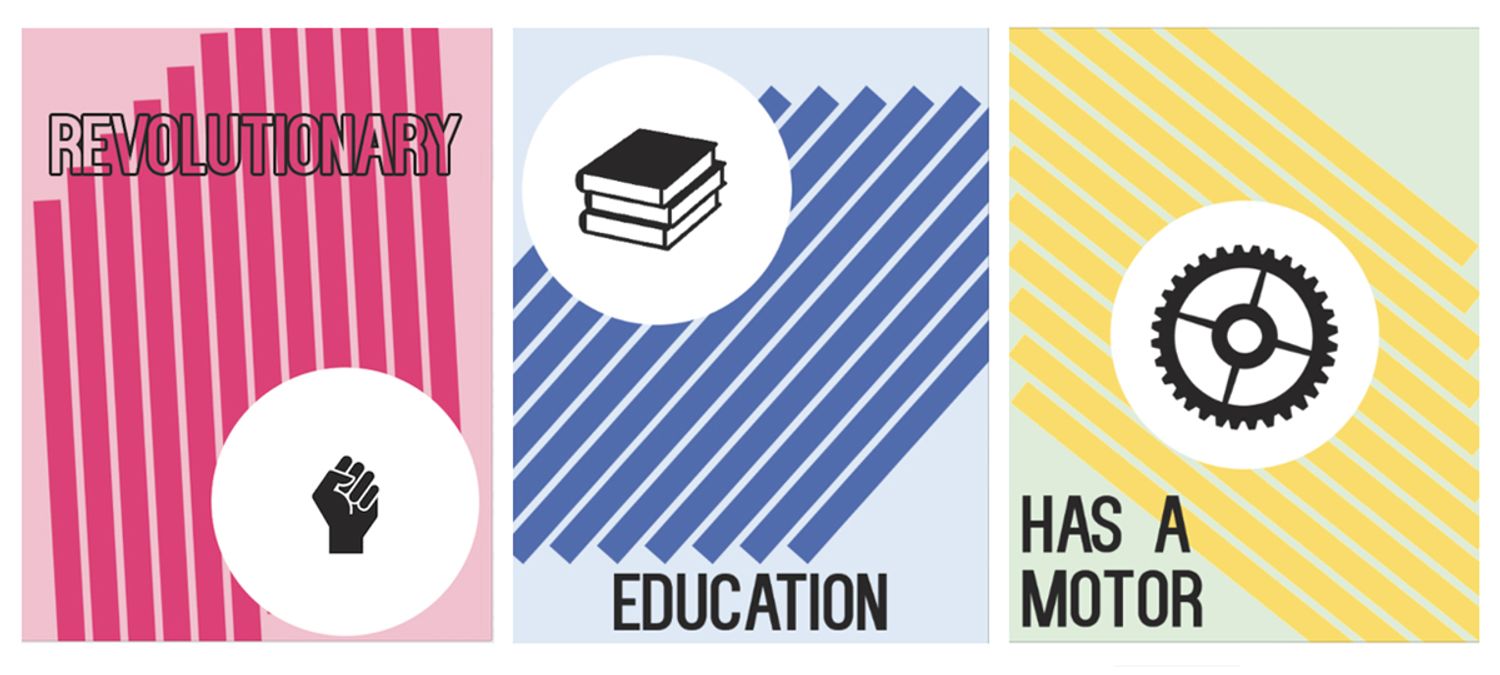
Workshop Cards
Narrative
Utopian, Dystopian, Apocalyptic, Revolutionary
Domain
Politics, Fashion, Food, Music, Education, Security, Health, Environment, Space Travel
Object
Tube, 3D Printed, Transmits Data, Wearable, Makes Music, Weapon, Sphere, Has A Motor, Changes Color, Air Pump, AI
30mins - MANUSCRIPTS:
Archivists are tasked with blending randomly chosen cards (one from each suit) to reveal an artifact that belongs to the future Iyapo Repository. In the given example, they are required to uncover Revolutionary, Educational device that Has A Motor, embodying the essence of African/African Diasporic futures. They then document the description and function of the artifact, and illustrate it on the supplied manuscript document.
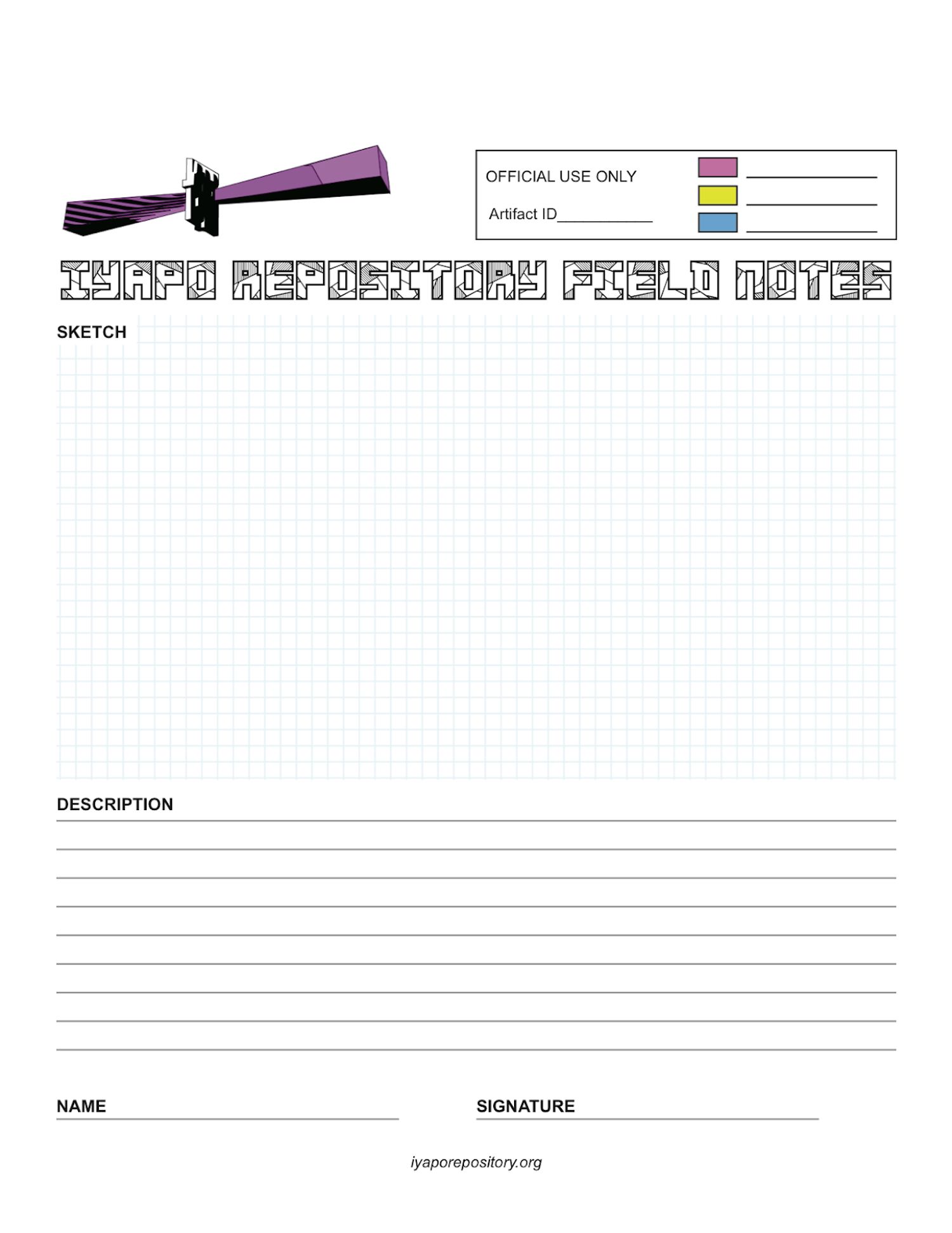
Workshop Manuscript
30mins - PROTOTYPING:
Based on the workshop's budget and remaining time, archivists transition to either rapid prototyping, virtual reality engineering, or digital fabrication. In rapid prototyping, they engage with components like microprocessors, LEDs, buzzers, and motors to swiftly create a tangible prototype of their sketched design. For VR engineering, the Tilt Brush app and HTC Vive are utilized to render the objects in three-dimensional space. In the realm of digital fabrication, files are prepared for 3D printing or laser cutting to materialize certain aspects of the artifact.
N/A - FABRICATION:
In certain workshops, participants may prototype artifacts, yet the Iyapo Repository retains the authority to create fully functional artistic pieces from selected manuscripts. These completed prototypes are subsequently displayed. Below, we present examples of manuscripts produced during the workshops alongside the finalized artifacts that were developed from them.
20mins - DISCUSSION:
Once the archivists have completed their artifact documentation on the manuscript, the groups convene to present and deliberate on each group's artifact and design decisions. They explore the following aspects and ask questions:
-
The importance of the artifact.
-
Its potential impact.
-
The feasibility of realization.
-
Obstacles to its implementation.
-
Its connection to contemporary concerns.
-
How does this artifact envision the future, and what futures does it make possible or prevent?
-
In what ways does the artifact reflect or challenge current technological trends or societal norms?
-
How does the artifact address or contribute to the resolution of specific societal, environmental, or technological issues?
-
What ethical considerations arise from the creation and potential use of this artifact?
-
How is inclusivity considered in the design of the artifact? Who benefits from its use, and who might be excluded or negatively impacted?
-
What historical or cultural references are embedded in the design of the artifact, and why were they chosen?
-
How does the artifact inspire new ways of thinking or perspectives on its intended context or use?
-
What role does imagination or speculative thinking play in the artifact's conception and design process?
-
How could the artifact evolve with advancements in technology or changes in societal needs?
-
What interdisciplinary collaborations or expertise would be necessary to make this artifact a reality?
2mins - WRAP UP
We collect the manuscripts for the archives and thank the participants for their contribution.
